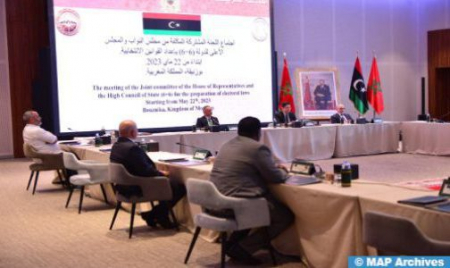Kuwait Lauds Morocco’s Efforts to Reach Compromise between Libyan Parties
Kuwait hailed, on Thursday, the efforts made by the Kingdom of Morocco after hosting, in Bouznika, the meeting of the “6+6” Joint Commission tasked by the Libyan House of Representatives and High Council of State, which led to important compromises between the Libyan parties. In a statement, the Kuwaiti Ministry of Foreign Affairs welcomed the compromises reached by the “6+6” joint commission, tasked by the Libyan House of Representatives and Council of State with preparing the electoral laws relating to the organization of the presidential and parliamentary elections scheduled for the end of the year. The Ministry also expressed its aspiration that these compromises will lead, over the next few days, to the official approval by the Libyan parties of the electoral laws in a way that meets the expectations and aspirations of the brotherly Libyan people. The “6+6” joint commission announced on Tuesday that, after two weeks of meetings in Morocco, its members had reached a compromise on the laws governing the presidential and parliamentary elections. The Bouznika meeting is a continuation of the series of meetings hosted by the Kingdom, bringing together the various Libyan parties with a view to deepening dialogue on ways and means of resolving the crisis in the country, following an approach that provides the right platform for dialogue and constructive consultation. These meetings had led to important agreements favorable to the settlement process, led by the Skhirat Agreement (2015), the agreement between the speaker of the House of Representatives, Akila Saleh, and the president of the Libyan High State Council, Khalid El Machri in October 2022 on the implementation of the results of the Bouznika process concerning sovereign positions and the unification of executive power. The Kingdom of Morocco is pursuing its commendable efforts to find a definitive solution to the crisis in Libya so as to guarantee its unity, stability and development by supporting its efforts to organize elections within an inclusive, participatory and pragmatic framework.

